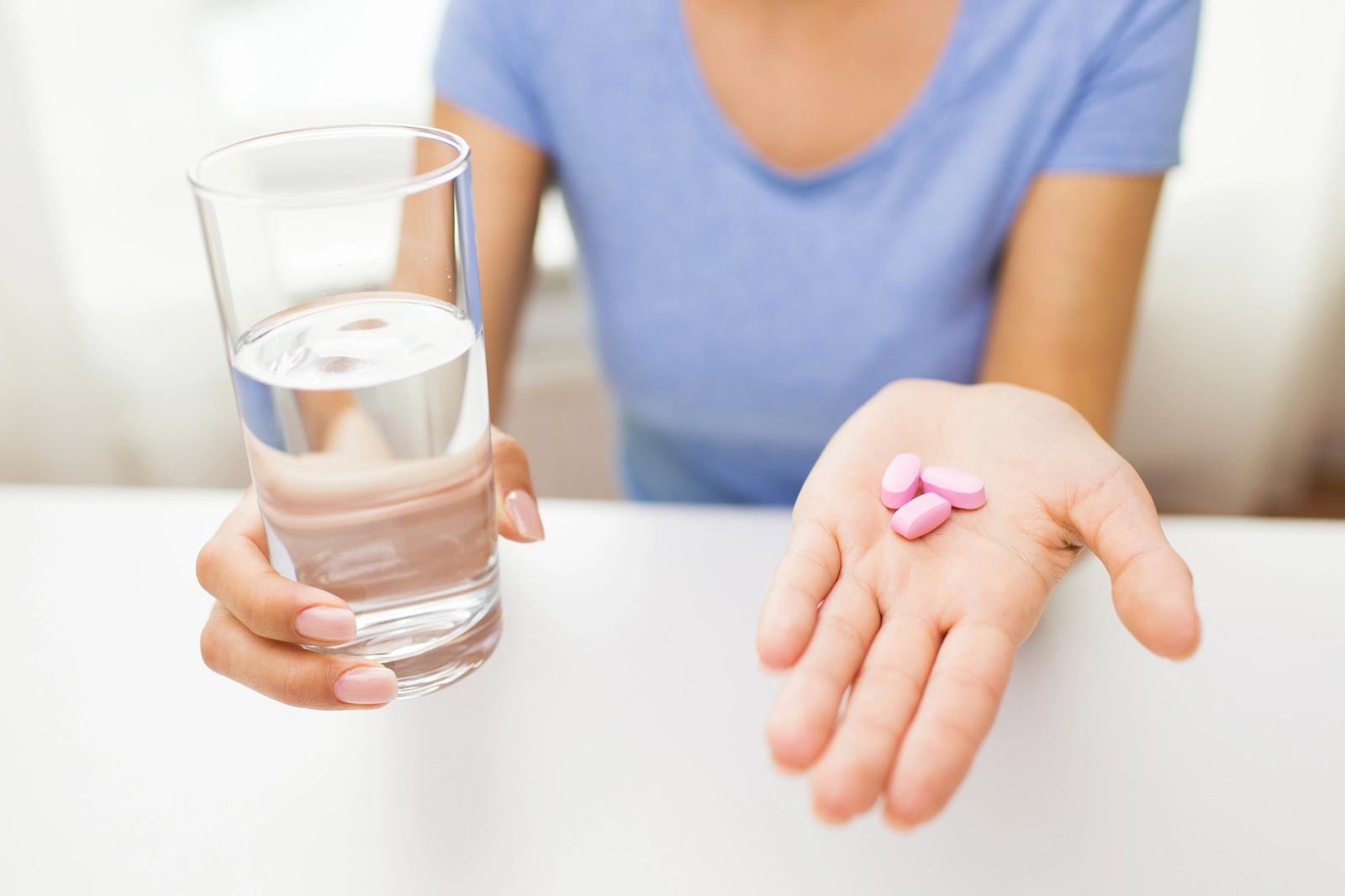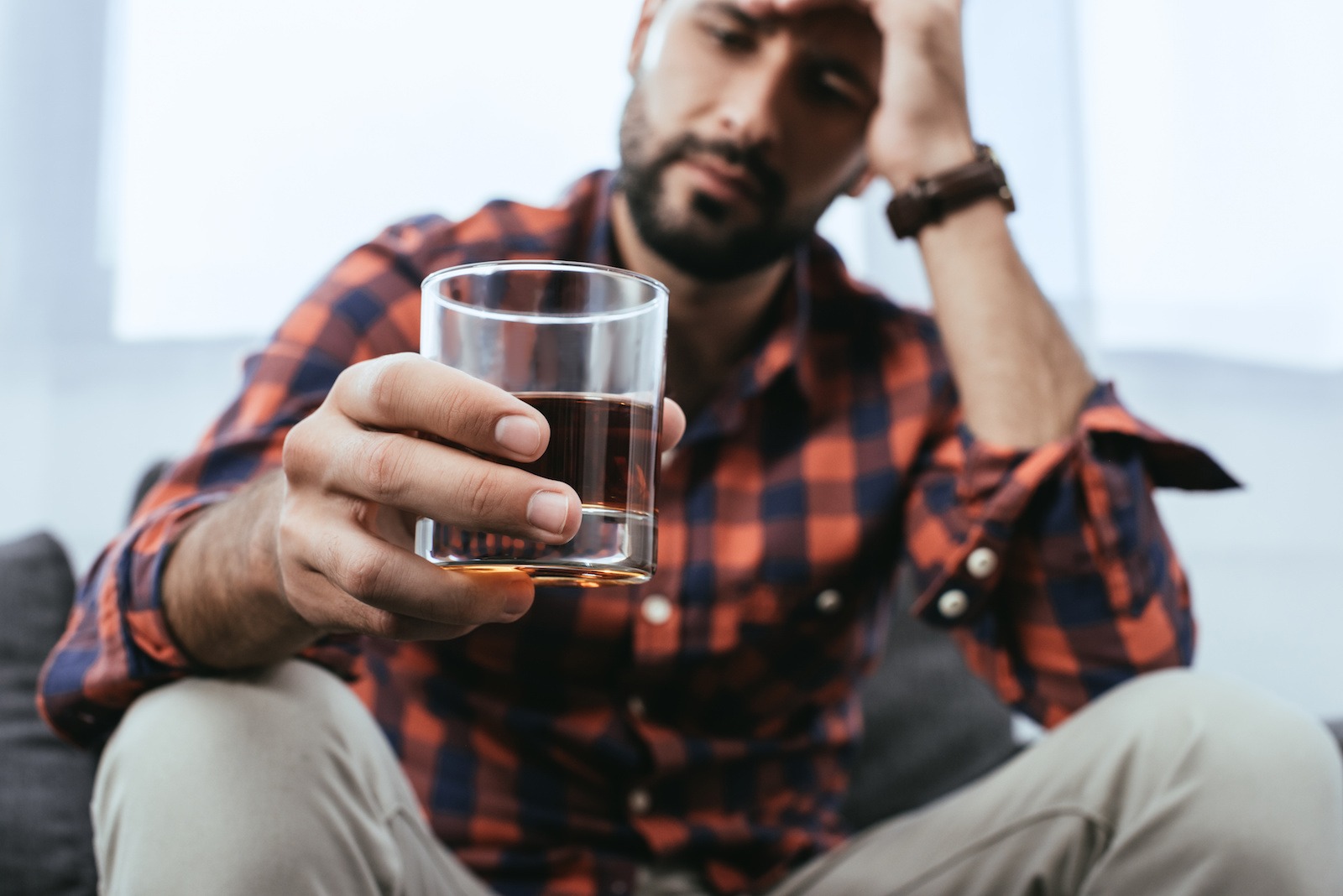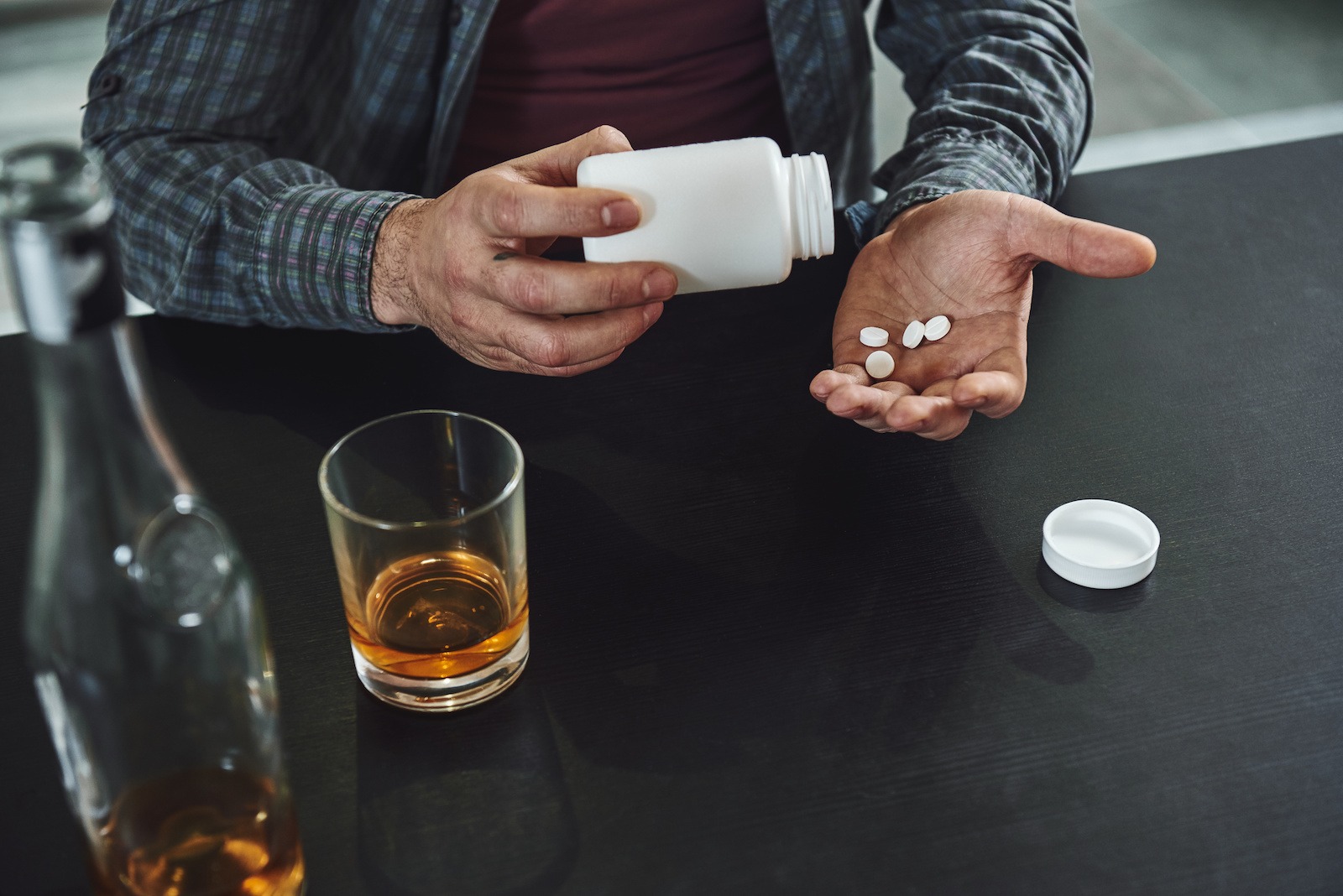Addiction | 6 min read
Benadryl and Alcohol: Drug Interactions and Risks
Medically Reviewed By

On September 16, 2024
Written By
On September 3, 2022

What you will learn
- Benadryl is an over-the-counter antihistamine medication used to treat allergies.
- Diphenhydramine, the main ingredient in Benadryl, is a central nervous system depressant that can interact dangerously with alcohol.
- Combining Benadryl and alcohol can cause dangerous levels of sedation that can put you at risk of injury or adverse side effects.
If you suffer from seasonal allergies and symptoms like a runny nose, sneezing, or red, itchy eyes, Benadryl is a reliable over-the-counter (OTC) drug to relieve your symptoms. The brand-name antihistamine diphenhydramine is a safe option for many people. However, it does have the risk of interactions – particularly with alcohol.
Learn more about the drug interactions and risks of mixing Benadryl with alcohol and what precautions you should take.
What Is Benadryl and How Does It Work?
Benadryl is a brand-name version of the antihistamine diphenhydramine. Antihistamines interfere with the action of the compound histamine in the body, which affects your immune response. Histamines are behind the nasal congestion, itchy skin and eyes, and other symptoms from seasonal allergies, hay fever, or topical allergens. Antihistamines, such as Benadryl, block the body’s response to allergens, thereby relieving allergy symptoms.
Many people think it’s safe because Benadryl is available at most pharmacies and stores without a prescription. Benadryl is a powerful medication. However, that comes with some risks, including serious side effects if it’s combined with certain substances such as alcohol.
The Dangers of Mixing Alcohol and Benadryl
There is no safe level of alcohol consumption with diphenhydramine. Benadryl is a central nervous system depressant, or CNS depressant, which slows down the activity in the central nervous system and causes drowsiness, has sedative effects, and can cause difficulty with physical and mental tasks that require you to be alert. Alcohol, another central nervous system depressant, does the same thing.
If you combine Benadryl and alcohol, it can slow your central nervous system activity and lead to dangerous levels of sedation.[1] This is a risk with regular doses of Benadryl and alcohol, but the risk is much higher if you misuse Benadryl.
Other Health Risks of Mixing Benadryl and Alcohol
Other risks of combining Benadryl with alcohol may include: [2]
- Impaired motor skills
- Increased risk of falls
- Impaired coordination
- Extreme drowsiness
- Confusion
- Increased risk of overdose
Who’s At Risk?
Anyone who mixes alcohol and allergy medicine, such as Benadryl, may be at risk of serious side effects. Some populations may be at a greater risk than others, though, including [3]
- People over the age of 65
- Women
- People with glaucoma
- People with enlarged prostate
- People with COPD
When to Seek Medical Attention
If you or a loved one has mixed diphenhydramine and alcohol and begin to experience any of the following adverse effects, it’s important to seek medical attention right away: [4]
- Trouble breathing
- Confusion
- Extreme drowsiness
- Hallucinations
- Seizures
As soon as you begin to notice any of the above side effects, don’t call your healthcare provider. Instead, seek emergency medical attention immediately by calling 911 or going to your nearest emergency room.
Benadryl Misuse
Benadryl is approved to treat the symptoms of allergies, such as seasonal outdoor allergies. It’s not intended for any other purpose, but it’s common for people to misuse Benadryl as a sleep aid> because of the drowsiness it causes.[5]
Alcohol is also misused to help with sleep and self-medicate insomnia. If you take them together, however, it can have the opposite effect. You can experience dizziness that affects your ability to get complete, restful sleep.
Driving on Benadryl and Alcohol
Benadryl has a warning not to drive or use any heavy machinery while you’re taking the medication. This is because of the risks of severe central nervous system depression, which can make you drowsy and slow your reaction times – a necessary component of safe driving.
According to the National Highway Traffic Safety Administration, Benadryl may have a> bigger impact on your ability to stay alert and drive safely than alcohol.[6] If you combine the two, it can be hazardous for you and others on the road.
Can I Have Any Alcohol with Benadryl?
No. It’s difficult to know how any amount of alcohol will affect you while you’re taking Benadryl, so it’s best to err on the side of caution. Everyone has different reactions to medications and different alcohol tolerances. One person may become extremely drowsy after taking one Benadryl dose, while others may feel completely alert.
It could be important to note that alcohol, in particular, can impair your judgment. Even if you feel capable of driving or operating a motor vehicle while under the influence of alcohol and Benadryl, you should avoid doing so. You may not realize the extent to which this cocktail has affected you until you’re behind the wheel. At that point, it could be too late.
The legal consequences of driving while impaired are another concern. Even if you feel okay to drive while under the influence of alcohol and Benadryl, it’s illegal to do so. If you get pulled over, you may face severe legal penalties, including hefty fines and even jail time.
If you’re not sure how the medication affects you, it’s best to avoid alcohol entirely while you’re taking Benadryl. If you do have a drink or two, avoid driving or engaging in other activities that can be dangerous if your reaction times are slowed.
Additional Risk Factors for Alcohol and Benadryl Interactions
Alcohol and Benadryl are never entirely safe together – there’s always a possibility of a reaction. However, certain people are at an increased risk of interactions, including:
- Older adults: Older people tend to have a lower alcohol tolerance than younger people.[7] Combining any medication with alcohol can increase the risk of serious side effects, particularly with Benadryl.
- Women: Women usually have a lower alcohol tolerance than men, leading to greater levels of sedation and confusion.[8]
Most people don’t experience serious side effects of Benadryl when taking the drug by itself and as directed. However, there have been reports of people misusing Benadryl and experiencing side effects from high doses>, such as hallucinations, seizures, and trouble breathing.[9] Mixing Benadryl with alcohol significantly increases these risks.
Benadryl can worsen the symptoms of some severe medical conditions as well, including glaucoma, an enlarged prostate, and chronic obstructive pulmonary disease (COPD). These effects may be worse with alcohol.
What to Do If You Drank Alcohol with Benadryl
If you’ve accidentally mixed alcohol and Benadryl, don’t panic. Just pay attention to your symptoms and how you feel. If possible, have someone with you to watch for serious effects.
Several symptoms can occur when you mix Benadryl and alcohol, however. Seek medical attention if you experience extreme drowsiness, memory impairment, confusion, a disconnect from reality, seizures, hallucinations, or difficulty breathing.
When Can I Drink Alcohol After Taking Benadryl?
You should avoid alcohol until Benadryl has been eliminated from your system. Generally, Benadryl clears the body about two days after the last dose is administered. Remember that several factors affect how you break down medications, including age, body mass, medical conditions, organ function, and other substances you may have taken.
Risks of Hidden Alcohol Sources
It’s easy to avoid drinking alcohol while taking Benadryl once you understand the risks, but you need to be aware of hidden alcohol sources that can cause dangerous interactions.
For example, some medications contain small amounts of alcohol, such as cough syrup and laxatives. Like any cocktail, these drugs can interact with Benadryl. Always read the labels on drugs to reduce your risk of accidental interactions.
If you’re taking multiple OTC or prescription drugs, talk to your doctor or pharmacists about any potential interactions with Benadryl.
Signs of Substance Abuse
As mentioned, Benadryl may be misused as a sleep aid. Alcohol is misused in similar ways, and combining the two is a sign of substance abuse or a heightened risk of substance abuse.
When people combine Benadryl and alcohol intentionally, it’s usually with the intent to relax. If either drug doesn’t provide these effects on its own, they may mix the two to get stronger drowsiness.
Other Signs of Substance Use Disorder
Alcohol use disorder is the most common type of substance use disorder in the United States. Mixing alcohol with other substances, such as allergy medications, may result in a higher risk of alcohol addiction. There may be other signs of substance use disorder to be aware of. These may include: [10]
- Needing more of the substance to achieve the same effect (i.e., tolerance), such as requiring more alcohol to achieve the same effects of alcohol
- Spending a lot of time or money using the substance, recovering from the substance, or acquiring the substance
- Taking the substance in risky situations
- Continuing to use the substance despite it causing problems at work or school or with relationships
- Continuing to use the substance despite it exacerbating a medical or mental health condition
- Experiencing withdrawal symptoms
Getting Help for Abuse or Addiction to Benadryl and Alcohol
If you struggle with Benadryl or alcohol addiction – or both – it’s important to seek help before you experience serious health effects. While Benadryl is safe to stop on your own, quitting alcohol if your body has built up a tolerance and dependence can cause potentially life-threatening withdrawal symptoms.
The first step in treating alcohol abuse or addiction is medical detox. You can’t overcome alcohol withdrawal on your own, and detox provides a medical team to monitor your health, prevent complications, and minimize your withdrawal symptoms as much as possible.
Once detox is complete, it’s important to start an addiction treatment program to address the emotional, social, and psychological causes of addiction. Though treatment programs are tailored to your unique history and goals, they often include a combination of traditional counseling and behavioral therapies in an inpatient or outpatient setting.
Avoid Dangerous Interactions with Benadryl and Alcohol
If you take Benadryl for allergies, it’s crucial to avoid drinking alcohol with it. Benadryl causes high levels of sedation that are amplified by alcohol, leading to dangerous symptoms like slowed breathing and confusion. Talk to your doctor about possible drug interactions before you drink alcohol with Benadryl.
Frequently Asked Questions About Benadryl and Alcohol
Generally, antihistamines shouldn’t be combined with alcohol, whether it’s Benadryl or another antihistamine. These drugs tend to cause drowsiness and may interact dangerously with alcohol. Always check the instructions and warnings for your drugs to make sure they’re safe from alcohol or other substances.
Benadryl doesn’t normally cause harm to the kidneys or liver.[7] However, Benadryl can make it more difficult to empty your bladder, which can cause pressure that may lead to kidney damage in rare cases – usually with older adults or high doses.
The effects of Benadryl can wear off after about 4 to 6 hours, but that doesn’t mean the drug has cleared your system. It can take up to two days for Benadryl to be eliminated from the body, so it’s best to avoid alcohol until you know it’s no longer in your system.
The “Benadryl cocktail” is a new date rape drug that involves slipping the liquid version of Benadryl into the drinks of unsuspecting people.[8] Aside from the risks of being incapacitated, the combination of Benadryl and alcohol can cause dangerous complications for victims. Never leave your drink unattended; throw it out if it seems off.
Ascendant New York Editorial Guidelines
Here at Ascendant New York, we understand the importance of having access to accurate medical information you can trust, especially when you or a loved one is suffering from addiction. Find out more on our policy.
[1] U.S. Department of Health and Human Services. (n.d.-b). Harmful interactions. National Institute on Alcohol Abuse and Alcoholism. Retrieved from https://www.niaaa.nih.gov/publications/brochures-and-fact-sheets/harmful-interactions-mixing-alcohol-with-medicines on 2024, July 24.
[2]Abraham, O., Schleiden, L., & Albert, S. M. (2017, August). Over-the-counter medications containing diphenhydramine and doxylamine used by older adults to improve sleep. International journal of clinical pharmacy. https://www.ncbi.nlm.nih.gov/pmc/articles/PMC5541127/
[3] Human performance drug fact sheets – NHTSA. (n.d.-b). Retrieved from https://www.wsp.wa.gov/breathtest/docs/webdms/DRE_Forms/Publications/drug/Human_Performance_Drug_Fact_Sheets-NHTSA.pdf on 2024, July 24.
[4] U.S. Department of Health and Human Services. (n.d.-c). Older adults. National Institute on Alcohol Abuse and Alcoholism. Retrieved from https://www.niaaa.nih.gov/alcohols-effects-health/alcohol-topics/older-adults on 2024, July 24.
[5] Mumenthaler, M. S., Taylor, J. L., O’Hara, R., & Yesavage, J. A. (1999). Gender differences in moderate drinking effects. https://pmc.ncbi.nlm.nih.gov/articles/PMC6761697/
[6] Center for Drug Evaluation and Research. (n.d.). Taking too much of the allergy medicine benadryl is dangerous. U.S. Food and Drug Administration. Retrieved from https://www.fda.gov/drugs/drug-safety-and-availability/fda-warns-about-serious-problems-high-doses-allergy-medicine-diphenhydramine-benadryl on 2024, July 24.
[7] GoodRx. (n.d.-a). Is benadryl bad for your liver or kidneys? not really. GoodRx. Retrieved from https://www.goodrx.com/benadryl/is-it-bad-for-your-liver-or-kidneys on 2024, July 24.
[8] Stratford, S. (2017, February 23). Victims’ advocates warning about new “benadryl cocktail” rape drug. Fox 8 Cleveland WJW. Retrieved from https://fox8.com/news/victims-advocates-warning-about-new-benadryl-cocktail-rape-drug on 2024, July 24.





